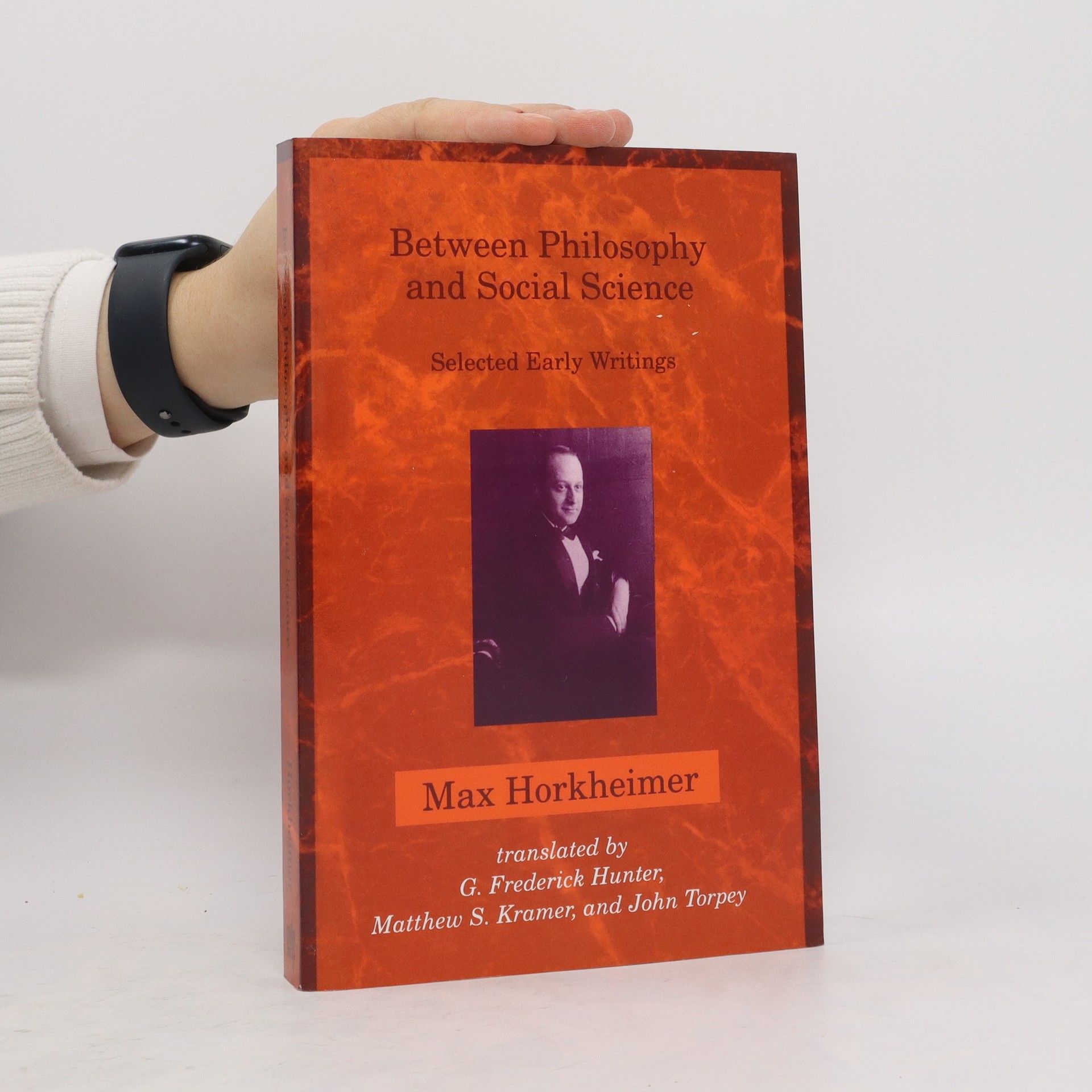Mehr zum Buch
These essays reveal another side of Horkheimer, focusing on his remarkable contributions to critical theory in the 1930s. Max Horkheimer is well known as the director of the Frankfurt Institute for Social Research and as a sometime collaborator with Theodor Adorno, especially on their classic Dialectic of Enlightenment. These essays reveal another side of Horkheimer, focusing on his remarkable contributions to critical theory in the 1930s. Included are Horkheimer's inaugural address as director of the Institute, in which he outlines the interdisciplinary research program that would dominate the initial phase of the Frankfurt School, his first full monograph, and a number of other pieces published in the 1930s. The essays, most of which have not appeared in English before, are surprisingly relevant to current post-philosophy debates, notably "On the Problem of Truth," with its focus on pragmatism, and "The Rationalism Debate in Current Philosophy," a sustained critique of the post-Cartesian philosophy of consciousness. Horkheimer's 1933 critique of Kantian ethics, "Materialism and Morality," is of particular interest given the current reaction to the neo-Kantian aspect of Habermas's work. There are also essays relevant to the current foundations debate within Continental philosophy, and the rationality/relativism question is sustained throughout the volume.
Buchkauf
Between Philosophy and Social Science, Max Horkheimer
- Sprache
- Erscheinungsdatum
- 1995
- product-detail.submit-box.info.binding
- (Paperback)
Hier könnte deine Bewertung stehen.




